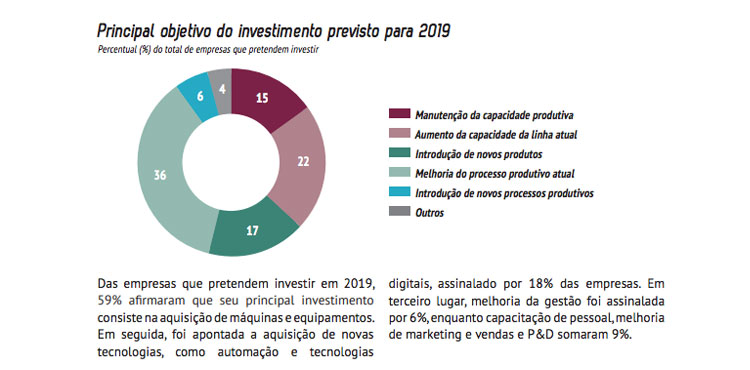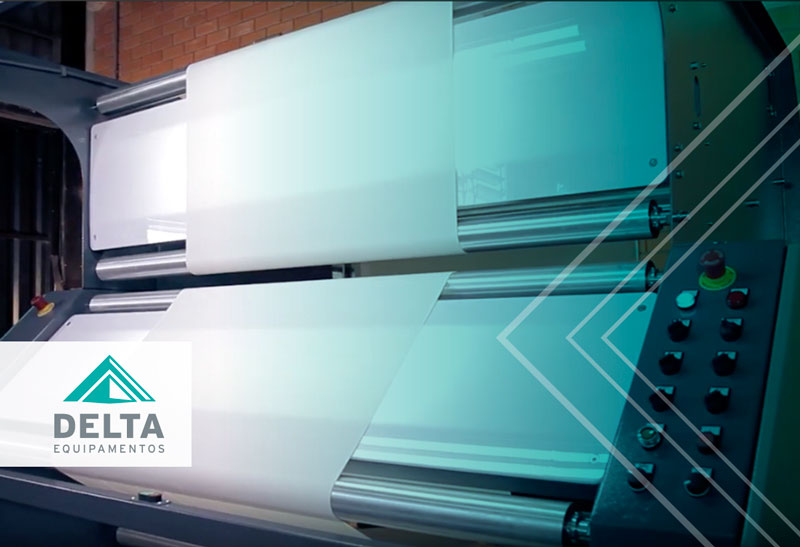Automating production has shifted from being a strategy to becoming a necessity.
In the textile sector, companies are undergoing transformations to keep up with consumer behavior, which demands quality products at competitive prices.
In the textile sector, companies are undergoing transformations to keep up with consumer behavior, which demands quality products at competitive prices. To better understand why you should automate your production line and what benefits this action will bring you, continue reading the article!
Automating production is necessary to remain competitive in the market.
Industry 4.0 has been advancing more and more in the Brazilian market. As early as 2015, there was a report from Estadão discussing the possibility of small and medium-sized enterprises also investing in automation, something that was previously restricted to large companies.
Nowadays, this type of investment is already a reality in many companies across various sectors (including textiles), and many of those that have not yet opted for automation are already considering it. According to a survey by CNI conducted in 2018, out of 632 companies surveyed, 48% intend to invest in Industry 4.0.

Although the numbers show that companies are already seeing the need for change, Brazil needs to accelerate this process so as not to end up losing space in the market, since the adoption of automation abroad is already much more advanced.
Considering that in countries where the cost of hiring employees is high, as is the case in Brazil, automation can become a way to increase competitiveness among competitors.
This is because, through it, the need for labor is reduced, production is optimized and quality control is carried out with more efficiency and agility. Organizations that adapt early will certainly have an important competitive advantage in the market.
Modernizing the production line is an investment
Some companies still resist changes, as they demand costs. However, purchasing automated equipment is an investment that provides excellent results.
According to the Brazilian Agency for Industrial Development (ABDI), by using the technologies available in Industry 4.0, Brazil can reduce repair costs, saving up to R$35 billion per year. Furthermore, there are savings of R$31 billion in production efficiency and R$7 billion in energy.
Production also reduces the consumption of natural resources and generates more sustainable, organized production with less waste. Therefore, in addition to producing more and better, with automation solutions, clothing manufacturers can save money and increase their profit margin.
Applicability and benefits of production automation for the textile industry
There are several existing ways of applicability of automation in the textile industry, we have separated the main ones and the benefits they offer. Check it out below:
Integrated databases with production automation
To begin with, it is possible to integrate database sectors from different sources. The equipment is connected to databases and the information collected is gathered in a cloud system, where it can be accessed, controlled and organized remotely.
It is also possible to create a database of suppliers, analyzing important aspects such as quality of raw materials, efficiency in delivery of goods and other data that will help to better control the services provided.
+ Find out more: How to modernize quality control in manufacturing?
Stock monitoring
With a customer database and purchase history, the clothing company can assess demand and even generate a forecast based on seasonality, maintaining a more efficient stock so that there is no shortage of inputs for the production of the pieces.
In fact, stock is monitored much more competently, as the quantities of available raw materials and products already made will be recorded.
+ Find out more: What is quality control? How does it work in the textile industry?
Quality inspection
Quality inspection is one of the activities most benefited by Industry 4.0. The process begins as soon as the fabrics are received and pass through equipment to check for defects and flaws. The Mesh Reviewer also collects data and helps direct you to the best type of cut.
Automation also enables much faster and more efficient sample analysis. Instead of taking three hours, with a Sample Washer it is possible to carry out the washing and drying process in around 20 minutes, using just a small sample of fabric. Then, just do the dimensional change test, fading test, among others.
It is also possible to automate processes such as knit relaxation, collar counting, edge trimming and many other activities. The process becomes faster, increasing the company’s production capacity and profits.
Did you see how automating production is a necessity? All these benefits can be obtained in your industry.



